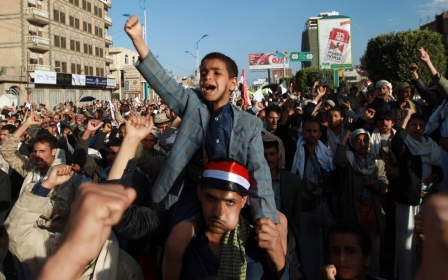Iran officials say '90 percent' of technical issues resolved in crunch nuclear talks

The majority of issues hampering a nuclear deal between the US and Iran have now been resolved, Iranian officials said during a day of nail-biting talks in the Swiss city of Lausanne.
“We have agreed on 90 percent of the technical issues," Iran's nuclear chief Ali Akbar Salehi told state television from the marathon negotiations taking place at a plush hotel in the lakeside town.
However, Salehi said that one issue, “of utmost importance,” had yet to be resolved, without elaborating.
US Secretary of State John Kerry, a chief negotiator for Washington, said the delegates were working “very hard” ahead of the 31 March final deadline for the outlines of a deal.
The deal being sought by Kerry, Iranian Foreign Minister Mohammad Javad Zarif and other negotiators including Salehi and US Energy Secretary Ernest Moniz will, they hope, convince the world that Iran will not develop nuclear weapons under the guise of its civilian programme.
The accord, due to be finalised by July, would involve Iran, which denies wanting a nuclear bomb, agreeing to scale down its nuclear activities to adhere to strict limits in return for relief from sanctions suffocating its economy.
If they manage it and the accord holds, both sides hope it will end a 12-year standoff and potentially help normalise Iran's international relations at a particularly volatile time in the Middle East.
Both sides must agree to a timetable to relieve the spider's web of UN, US and EU sanctions imposed on Iran in recent years, tied to certain "milestones" and staggered over whatever duration the accord will stipulate.
Despite these sanctions, Iran is unlikely to capitulate to conditions it sees as too strict, wrote Trita Parsi and Reza Marashi on Tuesday.
Iran has been building its stockpiles of low- and medium-enriched uranium in recent years despite the sanctions package, argued the analysts from the National Iranian American Council, and will continue to do so should negotiations fail.
“That is precisely why the Obama administration has framed the continuation of negotiations with Iran as a matter of war and peace. Walking away from the talks at this point will make war all but certain.”
A long way to go
US negotiators in the marathon talks were more downbeat than their Iranian counterparts on Tuesday, with one senior administration official involved in the technical side of the negotiations saying there was still "a way to go".
The official said on condition of anonymity that, specifically concerning technical dimensions, “we still have some tough issues to address".
A second US official said on Monday that "this is a Rubik's Cube or a puzzle [...] and until all the pieces click into place, you don't have the whole picture, since this is all interlocking elements that affect each other."
Zarif and Kerry held almost five hours of talks on Monday before Zarif went to and from Brussels - while Kerry went for a bike ride - to meet European foreign ministers and EU foreign policy chief Federica Mogherini.
Zarif and Kerry met again on Tuesday. Political directors from the other five powers involved - Russia, China, Britain, France and Germany - also began arriving in Lausanne on Tuesday and are due to meet on Wednesday.
Warnings over legitimacy of deal
Critics in the US and in Iran's arch foe Israel, widely assumed to have nuclear weapons itself, fear that the mooted restrictions on Iran's nuclear programme won't go far enough.
In Washington 47 Republican senators last week wrote an open letter to Iran's leaders telling them that Congress could alter any deal and that a future president could tear it up.
US President Barack Obama, a Democrat, is also fighting to stop the Republicans bringing new legislation that would force him to submit any deal to Congress for approval.
In Iran though, parliamentary speaker Ali Larijani said Monday that lawmakers would not block any deal as long as it is approved by supreme leader Ayatollah Ali Khamenei.
"We don't have problems like those in the US," Larijani said.
Two deadlines for a solution were missed in July and November, and analysts say Washington is keen to close a deal after this round of talks.
Expert Ali Vaez of the International Crisis Group said that both sides must reach a “concrete understanding” for negotiations, including of the details of any future deal, are to be sustainable.
Stay informed with MEE's newsletters
Sign up to get the latest alerts, insights and analysis, starting with Turkey Unpacked
Middle East Eye delivers independent and unrivalled coverage and analysis of the Middle East, North Africa and beyond. To learn more about republishing this content and the associated fees, please fill out this form. More about MEE can be found here.




